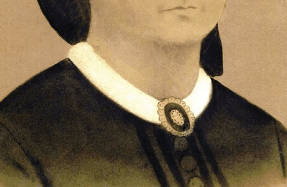
In January 1861, the firing upon Fort Sumter and the Civil War’s outbreak were still months away, but the war had already arrived in Pensacola, Fla. The strategic naval port had three forts (Barrancas, McRae, and Pickens) and a navy yard—the largest in the soon-to-be Confederate States. Control of the Federal installations around the bay were crucial to both sides looking to maintain a foothold in the state. Senator David L. Yulee strongly recommended that the secessionists in Florida should “lose no time” in trying to capture them, and they did not.
On January 8, secessionists had already taken control of the neighboring U.S. arsenal at Chattahoochee and Fort Marion in St. Augustine, when Federal soldiers guarding Pensacola’s Fort Barrancas fired warning shots at unknown passersby. With shots fired, Southern-sympathizing Florida Governor Madison Starke Perry quickly decided to seize all the United States property he could in Pensacola. Troops converged in the city from Florida, Alabama, Mississippi, Louisiana, and Georgia.

Florida formally seceded from the United States on January 10, and two days later the navy yard surrendered to Southern troops. Forts Barrancas and McRae followed suit and were soon under secessionist control, but U.S. troops held strong onto Fort Pickens at the western tip of Santa Rosa Island. Its location and size made it the ideal position from which






